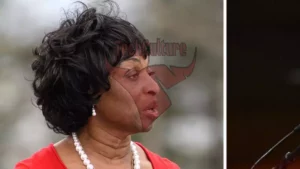South Korea Grapples with Deepfake Pornography Crisis
Three years after receiving fake nude images of herself online, a South Korean woman continues to suffer trauma, highlighting the growing problem of non-consensual deepfake pornography in the country. Recent legislative changes aim to address this issue, but significant challenges remain.
In response to the crisis, the South Korean parliament has revised laws to criminalize the watching or possession of deepfake porn. This move comes as authorities grapple with the fact that most perpetrators are teenage boys targeting female peers, raising concerns about the need for enhanced educational programs.
The issue has sparked public outrage, with thousands of young women protesting and demanding stronger measures against deepfake porn. Unverified school lists of victims have circulated, prompting fear and distrust among students. Forums and discussions involving politicians, academics, and activists are ongoing as the nation seeks solutions.
Law enforcement agencies have launched a crackdown, detaining hundreds for deepfake-related crimes. The recent arrest of Telegram founder Pavel Durov in France has drawn attention to platform responsibilities, with Telegram pledging a zero-tolerance policy on illegal deepfake content.
South Korea has been identified as the most targeted country for deepfake pornography, with experts citing factors such as high smartphone usage, lack of education on sex and human rights, and a misogynistic culture. The true extent of the problem is believed to be much larger than reported.
Victims of deepfake porn experience severe psychological distress, with some attempting suicide. One victim interviewed by the Associated Press reported significant disruptions to her life and studies. Many victims feel humiliated and fearful of social interactions, especially with men.
Critics argue that authorities have been slow to respond to digital sex crimes, pointing to past incidents of online sex crimes as evidence of the need for stronger enforcement. Legal outcomes often result in lenient sentences for perpetrators, further frustrating victims and advocates.
The deepfake issue has exacerbated existing gender tensions in South Korea, where women face workplace discrimination and social pressures, while men deal with mandatory military service. Young women express fear and helplessness in the face of prevalent sex crimes.
As South Korea continues to grapple with this complex issue, the effectiveness of new legislation and law enforcement efforts remains to be seen. The crisis underscores the urgent need for comprehensive solutions that address both technological and social aspects of deepfake pornography.




